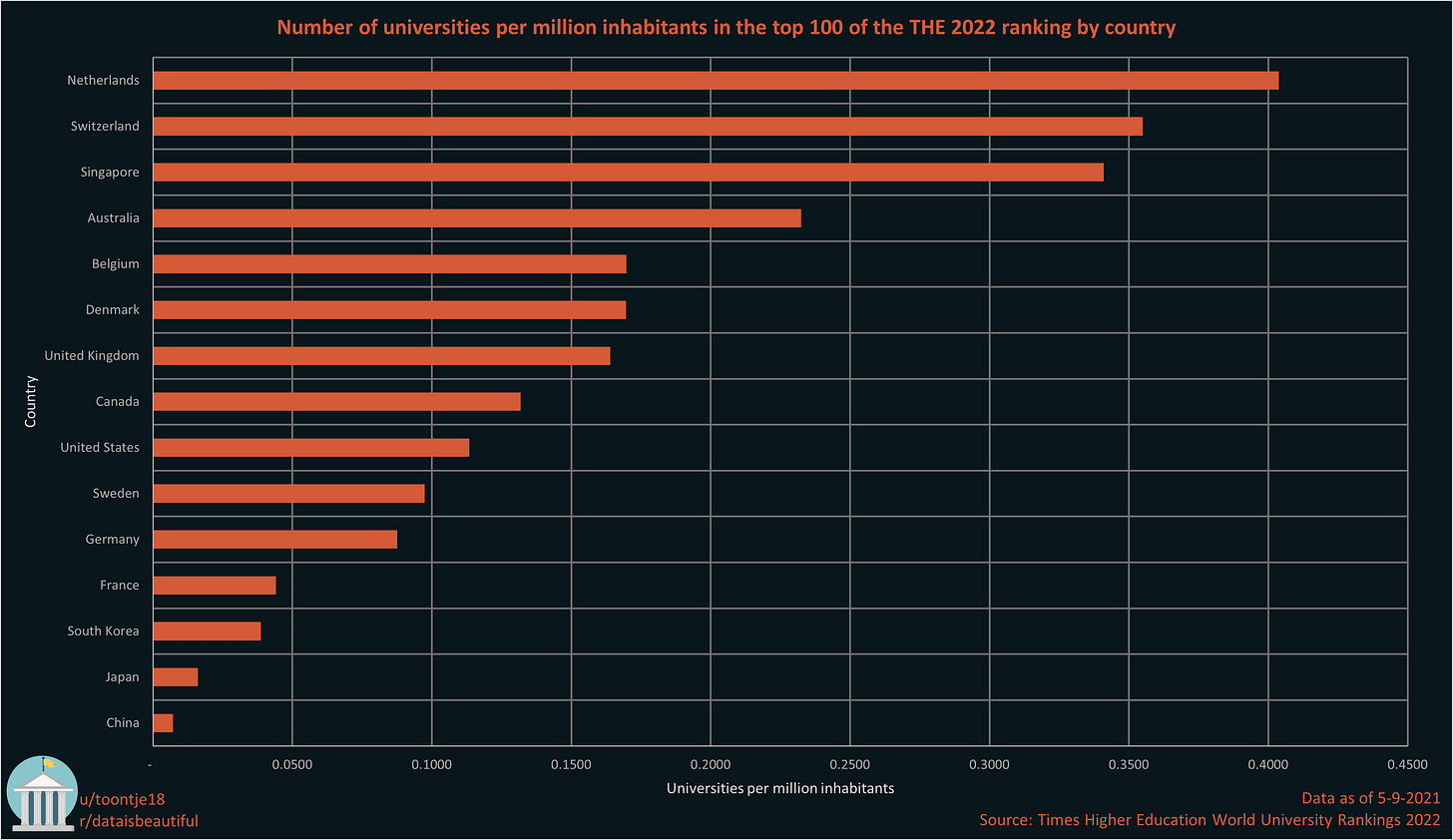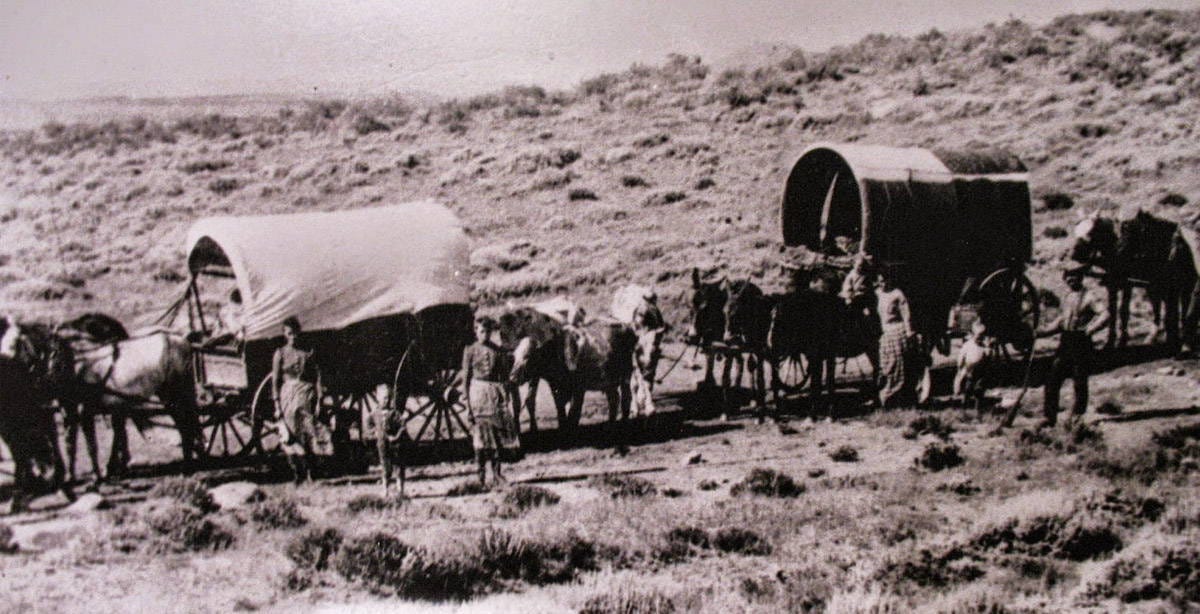The Frontier Mindset
The frontier used to be a place - now it's in our collective consciousness
Hi folks, Patrick Ryan here from Odin. We build powerful tools for VC’s, angels and founders to raise and deploy capital seamlessly.
Paul Graham wrote a great piece a few years ago called “How to Be Silicon Valley”1.
In essence he argued that the key to reproducing SV somewhere else was attracting a critical mass of two types of people - rich people and nerds - to one place.
However, I think a third ingredient is necessary: the right culture.
In the 17th and 18th century, people with an appetite for risk and adventure headed for the Americas. They built a new world there. Within the USA itself, California was, in many ways the Last Frontier. To get there, you had to brave disease, rough terrain (both deserts and mountains) and dangerous wildlife. The California Trail was only actually first opened by European settlers in the 1820s. With the California gold rush of 1848, over 250,000 people braved the trail in search of riches.
Over time, getting to California got easier.
The railroads were introduced in the mid to late 1800s, and by the turn of the century about 1.4m people lived there, although it was still largely a rural and agricultural part of the USA.2
It remained a tough place to survive - arid and exposed to the whims of nature, even in its major cities.

The earthquake of 1906 killed over 3,000 people in San Francisco, and to this day the state of California is the second most disaster-prone3 in the whole of the United States, exposed to forest fires, floods and drought routinely each year.
We forget the extent to which things like geography, weather and ancestral hardships shape a culture over time. The Frontier Mindset is deeply embedded in the fabric of Silicon Valley:
Taking risks is encouraged, failure is acceptable (almost expected);
You help each other out. You pay it forward4 and know that some day the favour will be returned;
People believe in each other. They believe crazy ideas can become a reality. The impossible becomes possible.
It is an interesting coincidence that the world’s richest human being, Elon Musk, is a unique product of the cultures of California and South Africa. Funnily enough, this same man is pushing the human frontier beyond earth, encouraging us all to look to space, and making it 10x cheaper for us to get there.
South Africans embody the Frontier Mindset. They are, as my friend Mohammed says “like cockroaches - and I mean that as a compliment. If and when world ends, the last man standing will be a Boer farmer with a beer belly, hiding under a rock somewhere gnawing on a goat haunch.”5
What I think is exciting about the internet, and the last two big startup boom / bust cycles (2000 and the early 2020s), is that it has allowed the Frontier Mindset to go global. It now exists in the heads of pockets of people everywhere. People like you. And this is driving measurable behavioural changes.
Historically (at least for the last ~75 years) the most ambitious, smartest (and most privileged) people in Britain went to London and worked in finance, or studied law, medicine, dentistry, etc. They didn’t start companies. In Singapore, the local culture encouraged ambitious people to enter the civil service. In Germany, they worked for an industrial giant. In France the situation was similar.
Was this the highest-impact use of their talents? Probably not.
Over the last 25 or so years, this has started to change. People everywhere are starting companies. The trend gathered pace in the pandemic.
It is possible this was a “zero interest rate phenomenon” (low rates means cheaper capital, so more people launch businesses). I’m sure this was a contributing factor, but I think something bigger has been happening.
Firstly, the internet allows anyone, anywhere to start a company, and sell to people everywhere else. It is the true Last Frontier, at least on planet earth.
Secondly, people have begun to realise that we cannot continue to rely on the way things were before.
In Europe - and the UK in particular - for far too long we have clung to our former greatness. Throughout the eighties, nineties and early noughties we kidded ourselves that the future would be like the past - everyone would get a degree, everyone would get a secure job working for the state or a large corporation. They’d buy a house, climb through the ranks and retire with a nice pension and a valuable property.
The last ten years or so have been a rude awakening from this dream state. We have built an economy that is overly reliant on (falsely inflated) property prices6. And when you account for the amount of money central banks have printed, it becomes evident that in recent decades we’ve succeeded in moving value around, but very little growth in real terms.

The hens are now coming home to roost. We face a demographic crisis, continued economic stagnation, rising interest rates, culture wars, real wars and more. Things look a bit bleak. In fact, Britain is now in many ways a developing country. Things perhaps look marginally better in the EU, but not by much.
At the same time, across Europe, we have a hell of a lot going for us. We have strong institutions - trusted legal systems, reliable political processes (under siege at times, but holding relatively strong) and great universities. Our young people are incredibly well educated by global standards.

They key thing that needs to change, in my view, is simply our attitude.
What gives me hope is that, thanks to the internet, the Frontier Mindset is now alive and well in our collective consciousness.
So ignore the doom and gloom. Ignore the naysayers and ignore the complainers.
Go explore the frontier. Go build.
Best of the internet
Interesting and funny stuff I’ve come across recently
How Moneyball has made the world boring and might be slowing human progress (video)
As the world becomes more statistically driven, it becomes qualitatively more boring, argues Derek Thompson. It's not just baseball - it's true in basketball, it's true in Hollywood, music, journalism, etc. - it’s a meta trend of our current times. As we get smarter at understanding what people want, there's a tendency to simply serve them up what they just consumed. They get stuck in a boring algorithmic hyperloop of their own making.
The same phenomenon happens on social media - the more likes something gets, the more reach and likes it gets. What is worrying is this “algorithmic hyperlooping” might also be happening in science and technology. So many papers are now published on any given subject that people focus on a select few - those that have the most consensus. This is dangerous, because great ideas are usually heretical when they first come about. Giordano Bruno was burned at the stake in 1600 for supporting Copernicus’ theory that the sun was at the centre of the solar system.
It is crucial to think independently, especially when there is a broad consensus on something. In the words of Oscar Wilde: “Whenever people agree with me I always feel I must be wrong.”
AI and the frontier paradox
Konstantine Buhler argues that today’s AI is tomorrow’s “oh that’s just a big statistical model”. He discusses how this has always been the case in computing, and what it means for this wave of AI investment
Econ 101
Love is wise, hatred is foolish
Bertrand Russel’s message to young people 1,000 years from today. Unsure if they’ll have the attention span to watch the whole video. Worth it though
That’s all for today! Sorry it’s been quiet - work at Odin has been keeping me busy.
As usual if you’re interested in setting up an SPV or raising a fund, or if you’re a founder and want to raise a round from your network in a few clicks, just reply to this email or click here and complete the form.
PR
How to be Silicon Valley - Paul Graham
History of California before 1900 - Wikipedia
The USA’s most disaster-prone states - US News
The rugby fans amongst you will recognise the Frontier Mindset in the South African national team, recently crowned world champions. They are united, relentless, and always seem to find a way to win, often against the odds. Of course, the country itself is not in a good place, torn apart by its chequered past. I am certainly not celebrating the way the white contingent ran the country they invaded. But I would still argue that their rugby team embodies much of what is great about their collective mindset.
We face peril because the UK economy relies on house prices - Fran Boait, the Guardian





